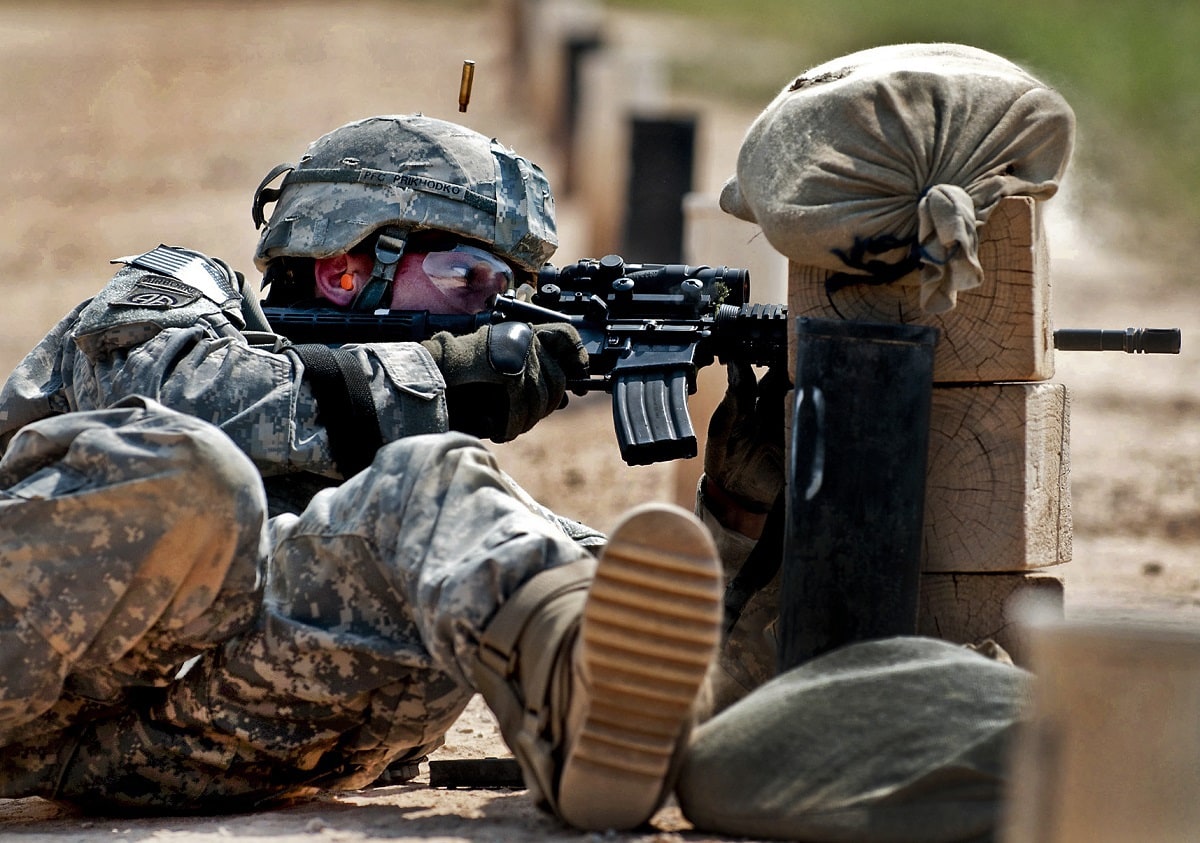The United States Defense Department is considering alternative locations to conduct the largest joint military exercise in Africa following Senate pressure to knock Morocco from its typical position as host. Dubbed “African Lion,” the series of drills bolster collaboration between partner nations and enhances U.S military strategic readiness to better respond to threats in the region. The push to bump Rabat from its hosting responsibilities is linked to a decades-old dispute surrounding Morocco’s sovereignty over the territory of Western Sahara.
A former Spanish colony, Western Sahara was annexed by Morocco in the mid-1970s. Following Spain’s withdrawal from the territory, conflict surrounding claims to the disputed region ensued between Rabat and the Polisario Front – a rebel Sahrawi nationalist liberation movement that seeks self-determinization in Western Sahara. The Polisario Front represents the Sahrawi Arab Democratic Republic (SADR) from exile in Algeria, which is recognized today by 41 United Nations member states. While The Polisario Front and Morocco officially signed a peace treaty in 1979, bursts of fighting continue.
Western Sahara is a Disputed Territory
Following the signing of the peace treaty, Moroccan forces steadily asserted more and more control over the disputed territory, eventually achieving dominance over more than two-thirds of Western Sahara in its western part along the Atlantic Ocean. According to Arab Center in Washington DC, the UN pledged that a referendum on the status of the disputed territory, “including the options of independence, autonomy, or integration with Morocco” would be introduced. This promised referendum was meant to be supervised by the UN Mission for the Referendum in Western Sahara (MINURSO) but has never come to fruition.
The failure of the referendum to be realized led to a resurgence in active resistance from The Polisario Front. The Arab Center detailed this evolution: “Dissatisfied with decades of political stalemate and gridlock, the Polisario Front decided to return to active resistance after the Guerguerat incident in 2020. Since the Polisario Front is aware of the disparity of military power, one can deduce that its armed escalation is a tactical move rather than a concrete solution to end the occupation. Its aim is to exert pressure to push for a change in political course by bringing about renewed international attention to the forgotten cause and ending popular frustration.”
In November 2020, the Polisario Front ended a three-decade-long ceasefire with Morocco after Rabat deployed troops to reopen the road to the buffer zone Mauritania. Asserting that the presence of troops would “put a stop to the blockade” of trucks traveling between Mauritania and Moroccan-controlled areas in the disputed territory. Rabat’s move was considered an act of “flagrant aggression” by the Sahrawi people.
Nearly a month after the Guerguerat incident, then-U.S. President Donald Trump reversed years of standard U.S. policy by recognizing Rabat’s sovereignty over Western Sahara, simultaneous to Morocco’s signing of the Abraham Accords peace agreement with Israel. While recognizing the country’s sovereignty was likely used as a tool to encourage Rabat to normalize ties with the Jewish state, the decision was met with condemnation.
Morocco’s Status of Host African Lion Exercise in Quesstion
Senator Jim Inhofe (R-OK), who has led the charge in removing Morocco’s status as host of African Lion, was one of the most critical voices against Trump’s decision to recognize Rabat’s sovereignty over the disputed territory. As the ranking member of the Armed Services Committee, Inhofe has prioritized the defense of the Sahrawi people amidst the Western Sahara conflict.
According to Defense News, Inhofe asserted that “For more than five decades, the Sahrawi people have been subjected to repeated broken promises and vicious attacks by the Moroccan government,” at a confirmation hearing for the nominees to lead Africa Command and Special Operations Command. The Senator added that “I have pushed [the Defense Department] to look at alternative locations for the annual African Lion military exercise that’s been hosted in Morocco previously, I’m pleased that [Defense Secretary Lloyd Austin] is in agreement with me on this issue.”
According to Inhofe, Defense Secretary Austin committed to seeking out alternative locations for the African Lion military drills. The U.S. and 10 partner countries participate in the annual exercise jointly in Tunisia, Senegal, Ghana, and Morocco. This year’s African Lion drill took place from June 6-30 and involved from than 7,500 U.S. service members. An AFRICOM press release incorporated details about the three-week-long exercise. “African Lion 22 featured a joint task force command post exercise, a combined arms live fire exercise, a maritime exercise, an air exercise including bomber aircraft, a joint forcible entry with paratroopers into a field training exercise, a chemical, biological, radiological, nuclear response exercise, and a humanitarian civic assistance program event.”
Although a new host for next year’s annual African Lion joint military exercise has not been publicly disclosed, prospects for Rabat’s continuing position have been minimized due to Sen. Inhofe’s efforts. To date, the Biden administration has not reversed the Trump-era decision to recognize Morocco’s sovereignty over Western Sahara.
Maya Carlin is a Middle East Defense Editor with 19FortyFive. She is also an analyst with the Center for Security Policy and a former Anna Sobol Levy Fellow at IDC Herzliya in Israel. She has by-lines in many publications, including The National Interest, Jerusalem Post, and Times of Israel.

